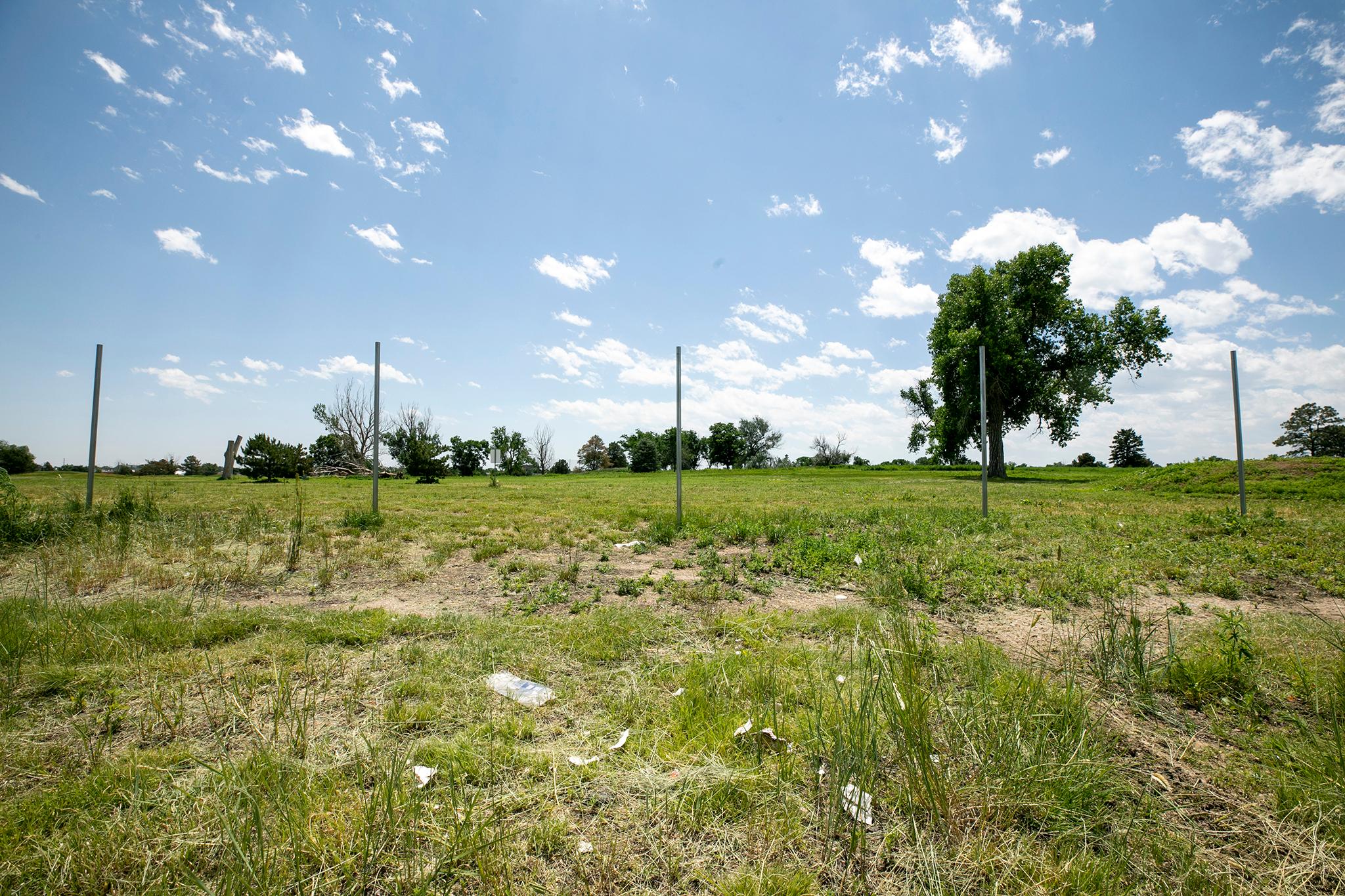Editor's note: This article has been updated with new information about Community Planning and Development's error and to note that Westside was not out of compliance with its permit.
On Thursday, the City of Denver sent a Notice of Violation to a subsidiary of Westside Investment Partners regarding new fencing the company is putting up around the Park Hill Golf Course to keep the public out and assert that the land remains private.
The citation, sent to the company on July 6, lists two violations:
It turns out the error was not Westside's but the city's and its own permitting process.
Westside has not responded to Denverite's requests for comment on the fencing or the future of the Park Hill Golf Course.
Here's what happened.
The property was inspected after resident Alex Walsh, who lives near the former golf course, noticed the fencing and filed a complaint.
Community Planning and Development sent an inspector to look at the fence and see if it conformed to Westside's proposed plans.
"Our inspector went out today and found that the fence is not being built according to the approved plans," Community Planning and Development spokesperson Amanda Weston wrote to Denverite on Thursday.
According to Weston, residents have also complained to the city about weeds and trash on the property, though the company has not been cited for those.
However, Community Planning and Development was wrong.
It turns out that Community Planning and Development realized it made "a clerical error," meaning Westside was not in the wrong.
Denver Parks and Recreation controlled permitting when Westside first put in its request to add fencing. That department approved it.
But then City Council rezoned the land and Community Planning and Development took over permitting on the portion of the fence approved by Parks and Rec.
The prior approval was not reflected in the planning department's permitting system, so the inspector didn't know the fencing had actually been approved.
"Due to the [July 4] holiday weekend and the original plan reviewer being on vacation, the permit had not been updated prior to the inspection," Weston said in a statement. "We are working with Westside to update the permit and approved plans and rescind the order to comply/notice of violation."
The future of the golf course has been in the hands of voters three separate times over the past two years, as Westside pushed to develop the land. Every time, the voters said no to development.
In the latest vote, in April, the public decided to keep a conservation easement in place that mandates the land be used for golf, as long as that's feasible.
Westside hoped the public would approve a development proposal that included Denver's fourth largest park, more than 2,500 housing units, more than 600 units of income-restricted housing, space for a grocery store, retail and more.
Ultimately, voters said no to all that and technically yes to golf in the Northeast Park Hill neighborhood, Denver's last plurality Black community. Some advocates hoped the vote would pave the way for the land to become one big park -- but that would require Westside selling, which the company has indicated it will not do.
During the pandemic, Westside opened the property to the public, but after the company lost at the ballot, the developer began to seal off the land.
According to a statement Westside provided to Denverite in May, the plan for the land is to comply with the conservation easement and build an 18-hole, fee-based, privately-run, publicly accessible golf course, shutting out all but those who can afford the sport. The timeline of when golf will return is uncertain.
Mayor-elect Mike Johnston has said he would pursue purchasing the land from Westside. The developer has not answered whether it would consider an offer from the city.











